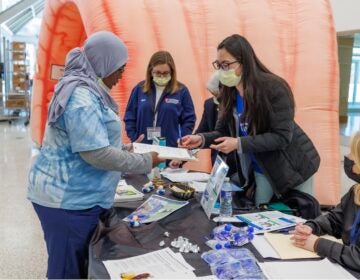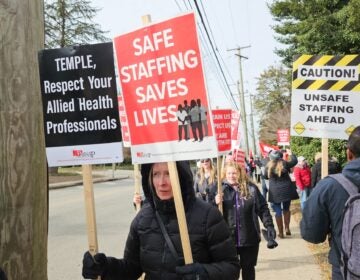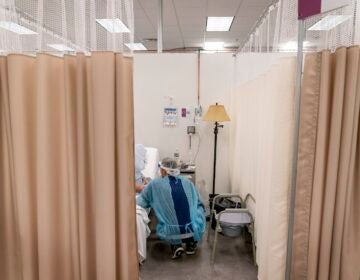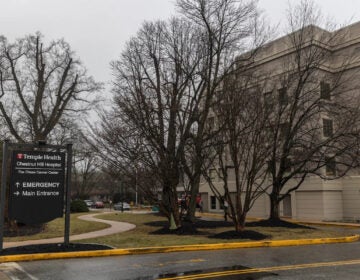Temple Health trauma surgeon receives federal grant to study media coverage of gun violence
Dr. Jessica Beard’s prior research found that reporting — particularly TV news — that focuses on single events often causes further harm to shooting victims.
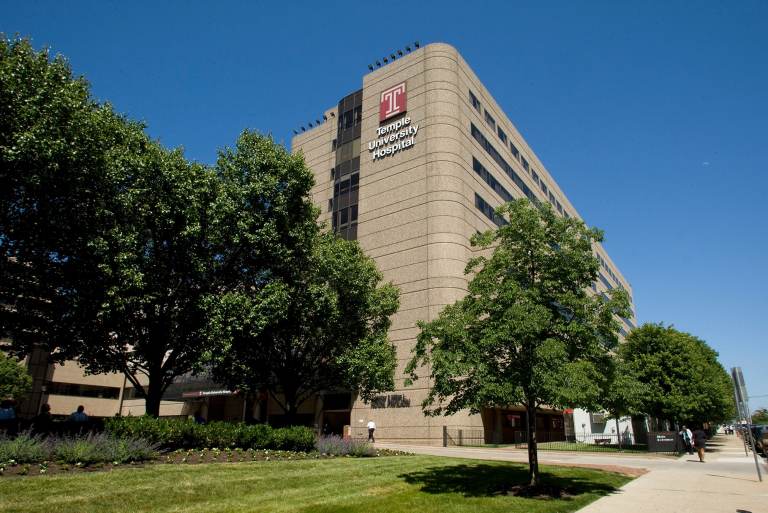
Temple University Hospital is the major education and teaching center for the Lewis Katz School of Medicine at Temple University. (Temple Health/Facebook)
From Philly and the Pa. suburbs to South Jersey and Delaware, what would you like WHYY News to cover? Let us know!
A trauma surgeon at Temple Health was recently awarded a National Institutes of Health grant to study the impact of media coverage of gun violence on victims and communities of color.
Dr. Jessica Beard adds to her prior research in which her team found that reporting — particularly TV news — that focuses on single events often causes further harm to shooting victims. Beard interviewed adult patients who attended the surgery clinic at Temple University Hospital within two months of sustaining a firearm injury.
Many of them watched reports of their shootings on the news.
“There are multi-level harms of this type of reporting,” she told WHYY News. “This episodic crime reporting makes them feel dehumanized. It makes them feel that they don’t control the narrative. It may harm their reputation. It may perpetuate stereotypical ideas about them, even amongst people that they know.”
She noted that victims who didn’t “make the news” felt relieved.
Twenty-six people participated in the study, including 21 Black patients, suggesting the value of further research on how much greater the impact of such news coverage might be on marginalized communities. The new two-year, $450,000 award was granted by NIH’s National Institute on Minority Health and Health Disparities for the report, “Examining racial and spatial disparities in harmful news media reporting on community firearm violence.”
“Firearm violence is concentrated in neighborhoods that have experienced historic and current racism through policies like red lining and a lack of access to social supports,” Beard said. “And when media reports present limited information about people who are shot, it can reaffirm stereotypes about why gun violence happens in these neighborhoods. We know that this type of reporting… that neglects the perspective of the people who are shot can actually lead audiences to blame victims.”
Beard also stressed that when news reports rely exclusively upon the perspective of police without input from the victims, it gives viewers the impression that law enforcement is the only answer to reducing shootings in those communities.
Beard, who also serves as director of research at the Philadelphia Center for Gun Violence Reporting, will be joined in the study by Jennifer Midberry, assistant professor of journalism and communication at Lehigh University, and Christopher N. Morrison, assistant professor of epidemiology at the Columbia University Mailman School of Public Health.

Get daily updates from WHYY News!
WHYY is your source for fact-based, in-depth journalism and information. As a nonprofit organization, we rely on financial support from readers like you. Please give today.



